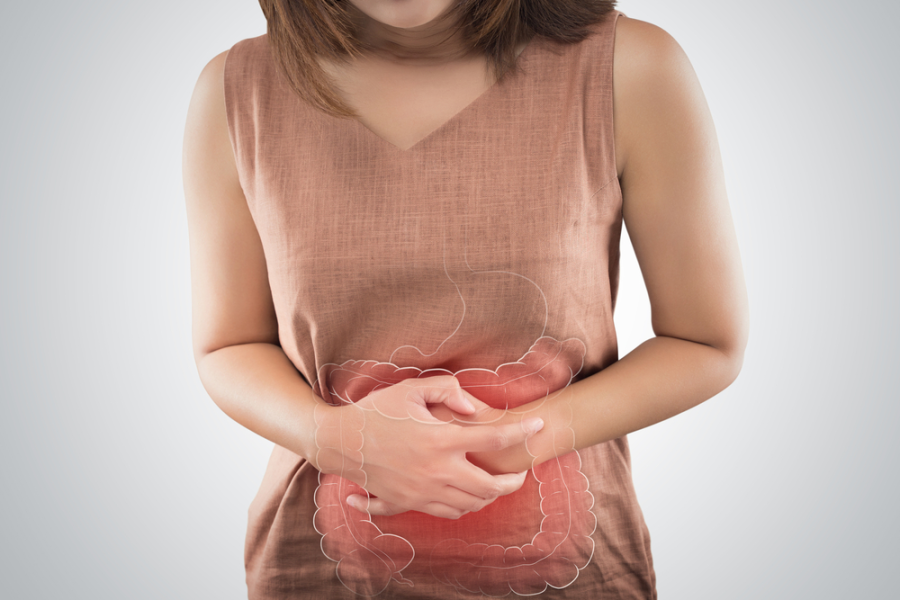Colitis is an inflammation of the colon and develops from various factors. Healthy habits such as a balanced diet, eating on time, and exercising, among others, help us prevent gastrointestinal diseases.
Colitis is an intestinal disease that consists of inflammation of the colon, which we commonly know as the ‘large intestine’, says Lilian Javier, a doctor specializing in nutrition. In some cases, there may be ulcerations and the patient presents abdominal pain, fever, and constant diarrhea, which are the main reasons for consultation. To assign an adequate treatment, Javier adds, it is important to have check-ups with a doctor specializing in gastroenterology; this will allow the disease and its causes to be detected.
According to gastroenterologist Fabricio Alvarado, colitis is a disease with multifactorial causes such as daily stress and poor eating habits. Javier adds that it can be caused by viruses, parasites, and food poisoning, as well as the excessive use of medications.
If you experience the following symptoms, it is important to seek specialists to diagnose the condition and receive treatment immediately. Although this recommendation applies to everyone, Alvarado emphasizes the need for patients over 50 years of age, since the symptoms could be confused with colon cancer.
Similarly, Alvarado explains that women who have had a hysterectomy (removal of the uterus) are more vulnerable due to hormones. ‘It is also the disease of repressed emotions and it occurs in people who do not express their emotions,’ she adds.
Symptoms of colitis
‘When we talk about colitis, we are referring to irritable bowel syndrome. The most common symptoms are pain in the lower abdomen, diarrhea, constipation, and bloody stools,’ explains Alvarado.
According to the Mayo Clinic, there may also be rectal pain, an urgent need to defecate, an inability to defecate (despite the urgency), and fatigue. Javier adds that patients experience fever and weight loss.
You must have good habits
Before administering any treatment, if symptoms appear, a patient should be checked by a gastroenterologist. ‘Patients are asked not to self-medicate because this could complicate the disease, minimize the symptoms, and make it worse,’ explains Javier. For colitis, there are special medications that must be administered by specialists.
In patients, there are common antecedents, says Javier, such as not eating breakfast. ‘This causes inflammation because the acid is not neutralized. By not eating, we cause damage, and inflammation is generated,’ he adds. So it is recommended that patients get into the habit of eating at specific times. ‘Schedule their activities and have 5 meals a day: three main dishes and two snacks,’ says Alvarado.
Another recommendation is to drink pure water. ‘This is a way of cleansing our intestinal tract. For our body to function properly, it needs to be hydrated. Otherwise, the organs become intoxicated,’ explains Javier. This must be pure water, not flavored or sweetened.
One of the main causes of colitis, says Alvarado, is everyday stress. That’s why it’s important to learn to relax. ‘Our body is designed to move, we have joints and ligaments. To relax, you should do aerobic exercise every day; it’s also a habit that facilitates intestinal transit,’ adds Javier. You should also sleep well to reduce stress levels and avoid inflammatory processes in the colon.
Alvarado also explains that there is an antispasmodic treatment, which ‘relaxes the smooth muscle of the colon. Some patients need medication to calm stress or anxiety,’ he adds.
Healthy eating
If the problem already exists, it is recommended to avoid eating foods that may promote inflammation of the colon. Javier says that patients should avoid citrus fruits, especially in juices. ‘These enter the body like a glass of acid and are very harmful in these cases,’ he says, adding that it is preferable to eat fruit.
In addition, you should increase your fiber intake in your diet, says Alvarado. This should be included in foods such as fruits and vegetables.
You should also avoid dairy products, gluten (bread, pasta), saturated fats, and other irritants such as spicy food.
Similarly, some foods produce gas and it is necessary to see if patients tolerate them, such as cabbage (broccoli, cauliflower, lettuce).
Remember to consult with specialist doctors when presenting symptoms and not to self-medicate.

